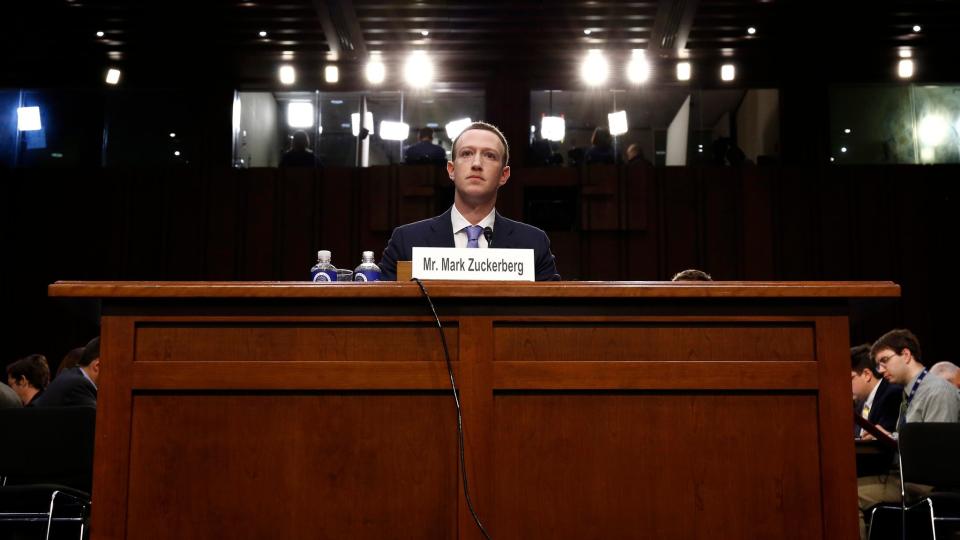
Internal documents show that the social network gave Microsoft, Amazon, Spotify and others far greater access to people’s data than it has disclosed.
By Gabriel J.X. Dance, Michael LaForgia and Nicholas Confessore
Dec. 18, 2018
For years, Facebook gave some of the world’s largest technology companies more intrusive access to users’ personal data than it has disclosed, effectively exempting those business partners from its usual privacy rules, according to internal records and interviews.
The special arrangements are detailed in hundreds of pages of Facebook documents obtained by The New York Times. The records, generated in 2017 by the company’s internal system for tracking partnerships, provide the most complete picture yet of the social network’s data-sharing practices. They also underscore how personal data has become the most prized commodity of the digital age, traded on a vast scale by some of the most powerful companies in Silicon Valley and beyond.
The exchange was intended to benefit everyone. Pushing for explosive growth, Facebook got more users, lifting its advertising revenue. Partner companies acquired features to make their products more attractive. Facebook users connected with friends across different devices and websites. But Facebook also assumed extraordinary power over the personal information of its 2.2 billion users — control it has wielded with little transparency or outside oversight.
Facebook allowed Microsoft’s Bing search engine to see the names of virtually all Facebook users’ friends without consent, the records show, and gave Netflix and Spotify the ability to read Facebook users’ private messages.
The social network permitted Amazon to obtain users’ names and contact information through their friends, and it let Yahoo view streams of friends’ posts as recently as this summer, despite public statements that it had stopped that type of sharing years earlier.
Facebook has been reeling from a series of privacy scandals, set off by revelations in March that a political consulting firm, Cambridge Analytica, improperly used Facebook data to build tools that aided President Trump’s 2016 campaign. Acknowledging that it had breached users’ trust, Facebook insisted that it had instituted stricter privacy protections long ago. Mark Zuckerberg, the chief executive, assured lawmakers in April that people “have complete control” over everything they share on Facebook.
But the documents, as well as interviews with about 50 former employees of Facebook and its corporate partners, reveal that Facebook allowed certain companies access to data despite those protections. They also raise questions about whether Facebook ran afoul of a 2011 consent agreement with the Federal Trade Commission that barred the social network from sharing user data without explicit permission.
[Here are five takeaways from The Times’s investigation.]
In all, the deals described in the documents benefited more than 150 companies — most of them tech businesses, including online retailers and entertainment sites, but also automakers and media organizations. Their applications sought the data of hundreds of millions of people a month, the records show. The deals, the oldest of which date to 2010, were all active in 2017. Some were still in effect this year.
In an interview, Steve Satterfield, Facebook’s director of privacy and public policy, said none of the partnerships violated users’ privacy or the F.T.C. agreement. Contracts required the companies to abide by Facebook policies, he added.
Still, Facebook executives have acknowledged missteps over the past year. “We know we’ve got work to do to regain people’s trust,” Mr. Satterfield said. “Protecting people’s information requires stronger teams, better technology and clearer policies, and that’s where we’ve been focused for most of 2018.” He said that the partnerships were “one area of focus” and that Facebook was in the process of winding many of them down.
Facebook has found no evidence of abuse by its partners, a spokeswoman said. Some of the largest partners, including Amazon, Microsoft and Yahoo, said they had used the data appropriately, but declined to discuss the sharing deals in detail. Facebook did say that it had mismanaged some of its partnerships, allowing certain companies’ access to continue long after they had shut down the features that required the data.
With most of the partnerships, Mr. Satterfield said, the F.T.C. agreement did not require the social network to secure users’ consent before sharing data because Facebook considered the partners extensions of itself — service providers that allowed users to interact with their Facebook friends. The partners were prohibited from using the personal information for other purposes, he said. “Facebook’s partners don’t get to ignore people’s privacy settings.”
Data privacy experts disputed Facebook’s assertion that most partnerships were exempted from the regulatory requirements, expressing skepticism that businesses as varied as device makers, retailers and search companies would be viewed alike by the agency. “The only common theme is that they are partnerships that would benefit the company in terms of development or growth into an area that they otherwise could not get access to,” said Ashkan Soltani, former chief technologist at the F.T.C.
Mr. Soltani and three former employees of the F.T.C.’s consumer protection division, which brought the case that led to the consent decree, said in interviews that its data-sharing deals had probably violated the agreement.
“This is just giving third parties permission to harvest data without you being informed of it or giving consent to it,” said David Vladeck, who formerly ran the F.T.C.’s consumer protection bureau. “I don’t understand how this unconsented-to data harvesting can at all be justified under the consent decree.”
Details of the agreements are emerging at a pivotal moment for the world’s largest social network. Facebook has been hammered with questions about its data sharing from lawmakers and regulators in the United States and Europe. The F.T.C. this spring opened a new inquiry into Facebook’s compliance with the consent order, while the Justice Department and Securities and Exchange Commission are also investigating the company.
Fuente: https://www.nytimes.com/2018/12/18/technology/facebook-privacy.html